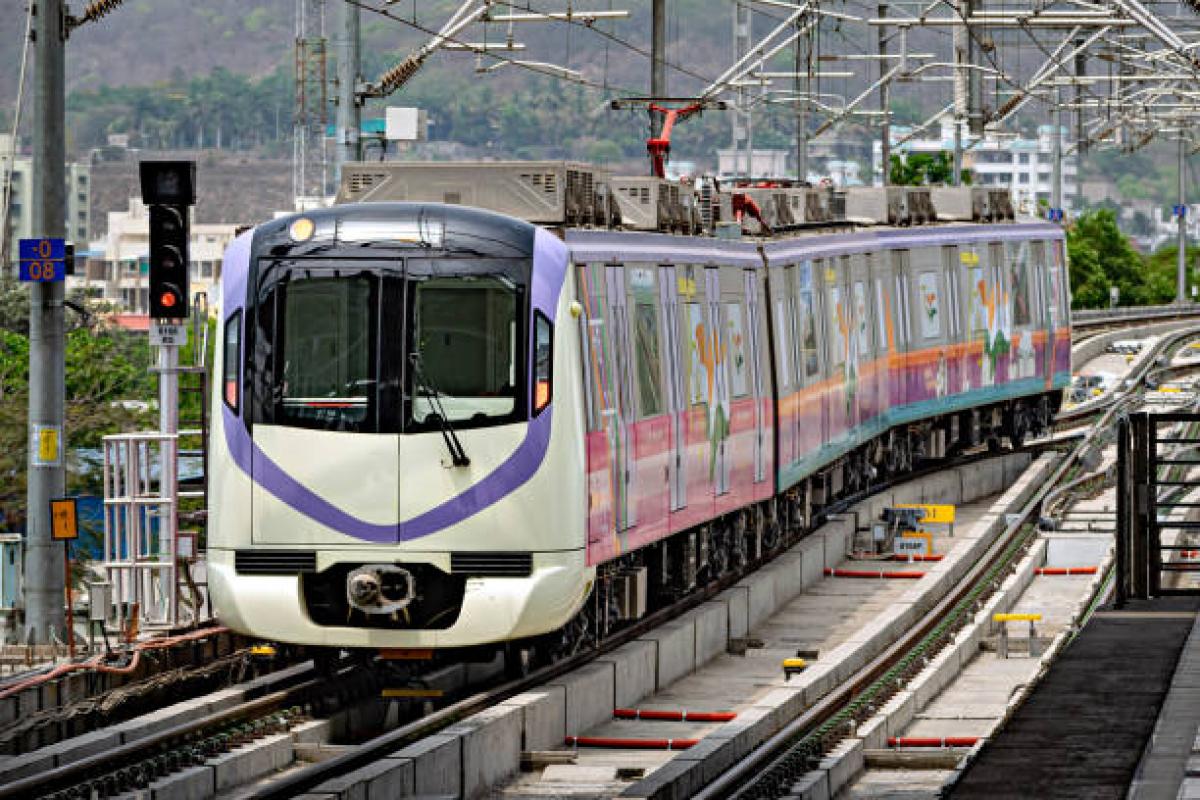PMC Greenlights Pune Metro Expansion, Strengthening Urban Connectivity
The Pune Metro network is set for a significant expansion as the Pune Municipal Corporation (PMC) has approved two new corridors, furthering the city’s mass transit infrastructure. The Hadapsar to Loni Kalbhor and Hadapsar to Saswad Road railway station routes, with a total estimated cost of ₹5,704 crore, have been endorsed, marking a strategic push towards seamless mobility. With an increasing population and rising vehicular congestion, these additions aim to cater to the growing commuter base while reducing traffic burden. However, PMC has clarified that it will not guarantee loan repayment for the project, limiting its financial commitment to ₹3.6 crore for land acquisition. The Maharashtra Metro Rail Corporation Ltd (Maha-Metro), the agency overseeing Pune’s metro development, had submitted the detailed project report (DPR), securing PMC’s approval after extensive deliberation.
The proposed Hadapsar to Loni Kalbhor route will span 11.35 km with ten metro stations, while the Hadapsar to Saswad Road railway station corridor will cover 5.57 km with four stations. The funding model follows the established pattern, with 20% contributions each from the state and central governments, while the remaining 60% will be raised through external loans. These corridors act as spur lines of the already approved Swargate-Khadakwasla and Kharadi-Hadapsar routes, with city officials advocating for prompt state-level approval. Although the DPR was initially submitted in May 2023, PMC had requested Maha-Metro to consult with the National Highway Authority of India (NHAI) and Pune Metropolitan Region Development Authority (PMRDA) to ensure alignment with ongoing infrastructure projects. Following positive feedback from these agencies, the proposal has now moved forward.
From a sustainability perspective, the expansion aligns with Pune’s efforts to promote eco-friendly transport alternatives and mitigate vehicular pollution. The city’s growing traffic congestion underscores the urgency of expanding mass transit options. The new metro lines will not only cater to daily commuters but also help reduce carbon emissions by encouraging public transport usage over private vehicles. With rising concerns over air quality and urban sprawl, enhancing metro connectivity plays a pivotal role in sustainable urban development. Metro systems are globally recognised for their ability to reduce the carbon footprint, and Pune’s continued investment in mass transit reaffirms its commitment to greener urban mobility.
Civic and urban planning experts stress that metro rail development must go hand in hand with last-mile connectivity solutions, including pedestrian-friendly infrastructure, feeder bus services, and integration with existing railway networks. The expansion of the Pune Metro comes at a time when the city is grappling with rapid urbanisation, necessitating well-planned mobility solutions. With the first phase operational and multiple extensions in the pipeline, the metro is expected to become the backbone of Pune’s urban transport ecosystem. The newly approved routes mark a step forward in addressing Pune’s transit challenges, though efficient implementation and timely execution remain critical to the project’s success.


